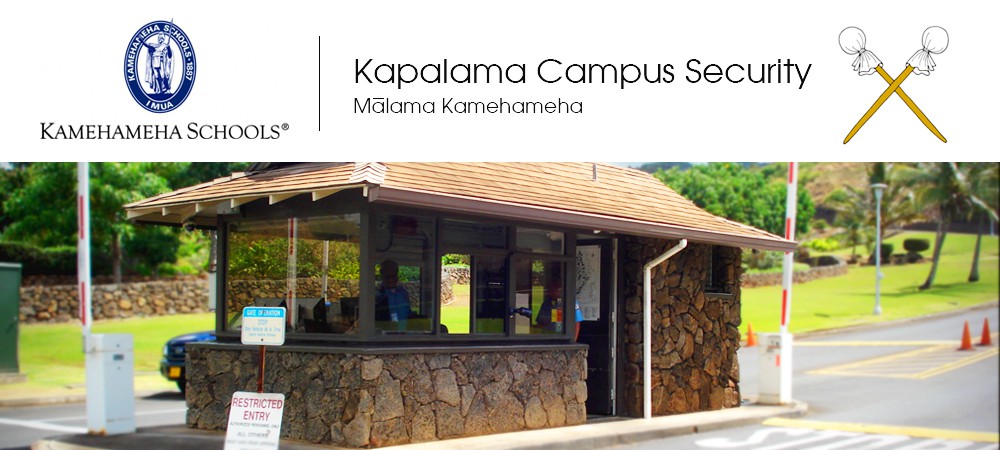 With the exception of an earthquake, most natural disasters will give us some warning and time to initiate the Kamehameha Schools Emergency Operations Plan (EOP).
With the exception of an earthquake, most natural disasters will give us some warning and time to initiate the Kamehameha Schools Emergency Operations Plan (EOP).
The key to disaster response is being prepared. Hawai’i State Civil Defense provides an early warning system through the use of “Watches and Warnings” with Statewide notification by sirens. When you hear the warning sirens, immediately go to a place where you can hear a radio or watch the local news.
- In all cases, when you hear a siren, tune your radio to any station. Listen to emergency information and instructions broadcast by Civil Defense.
- The radio stations will also broadcast information about the status of State functions — if they are open, closed, and who should or should not report to work.
- Do not use your telephone (including cellular phones) except in an emergency.
EARTHQUAKES:
Emergency Response Guidelines
In the event of an earthquake, if you are:
Indoors:
- Do not run outside immediately.
- Get under a desk, table, or supported doorway.
- Stay away from glass windows and mirrors.
- Watch for failing plaster, bricks, light fixtures and other objects.
- Watch for high bookcases, cabinets, shelves and other furniture or heavy equipment that might slide or topple.
- Don’t use candles, matches, or other open flames during the tremor. Douse all fires.
- Do not rush for stairways or elevators. Exits are likely to be jammed and elevators often stop operating. Seek safety where you are.
- Don’t be surprised if the electricity goes out, or if fire and burglar alarms start ringing or fire sprinkler systems go on. Expect to hear noise from breaking glass, cracks in walls and falling objects.
- Avoid power lines, as they may be live.
- Remain under cover for a few minutes and prepare for the possibility of aftershocks. Aftershocks often cause more damage to buildings already weakened by the initial shock.
- Do not evacuate the building until directed by an administrator (or designate) or unless you determine that the building/classroom is unsafe.
- Other facilities in the area may have been affected also, and help from local emergency response agencies may not be immediately available.
Outdoors:
- Do not run inside immediately.
- Stay in the open.
- Beware of fires, down utility lines, and aftershocks.
- Assist with evacuation of the buildings.
Driving:
- Pull to the side of the road and stop.
- Avoid utility lines or other objects that may fall.
- Set brakes and turn-off the ignition.
- Stay in the vehicle until the earthquake is over.
HURRICANES:
- Bring high winds, heavy rain, floods, and high surf.
- The hurricane season for Hawaii generally begins in June and ends in November.
- Hurricane Watch: Storm possible within 36 hours. Be prepared!
- Hurricane Warning: Storm expected within 24 hours. At this point, the sirens will sound. Listen to your radio for emergency information and instructions.
TSUNAMI:
- A series of destructive ocean waves affecting all shorelines.
- Be sure you have an evacuation plan to get out of the tsunami evacuation zone.
- Tsunami Watch: Tsunami possible. Get ready to evacuate if in tsunami evacuation zone.
- Tsunami Warning: Tsunami detected. Sirens will sound at this point. Stay away from shorelines.
